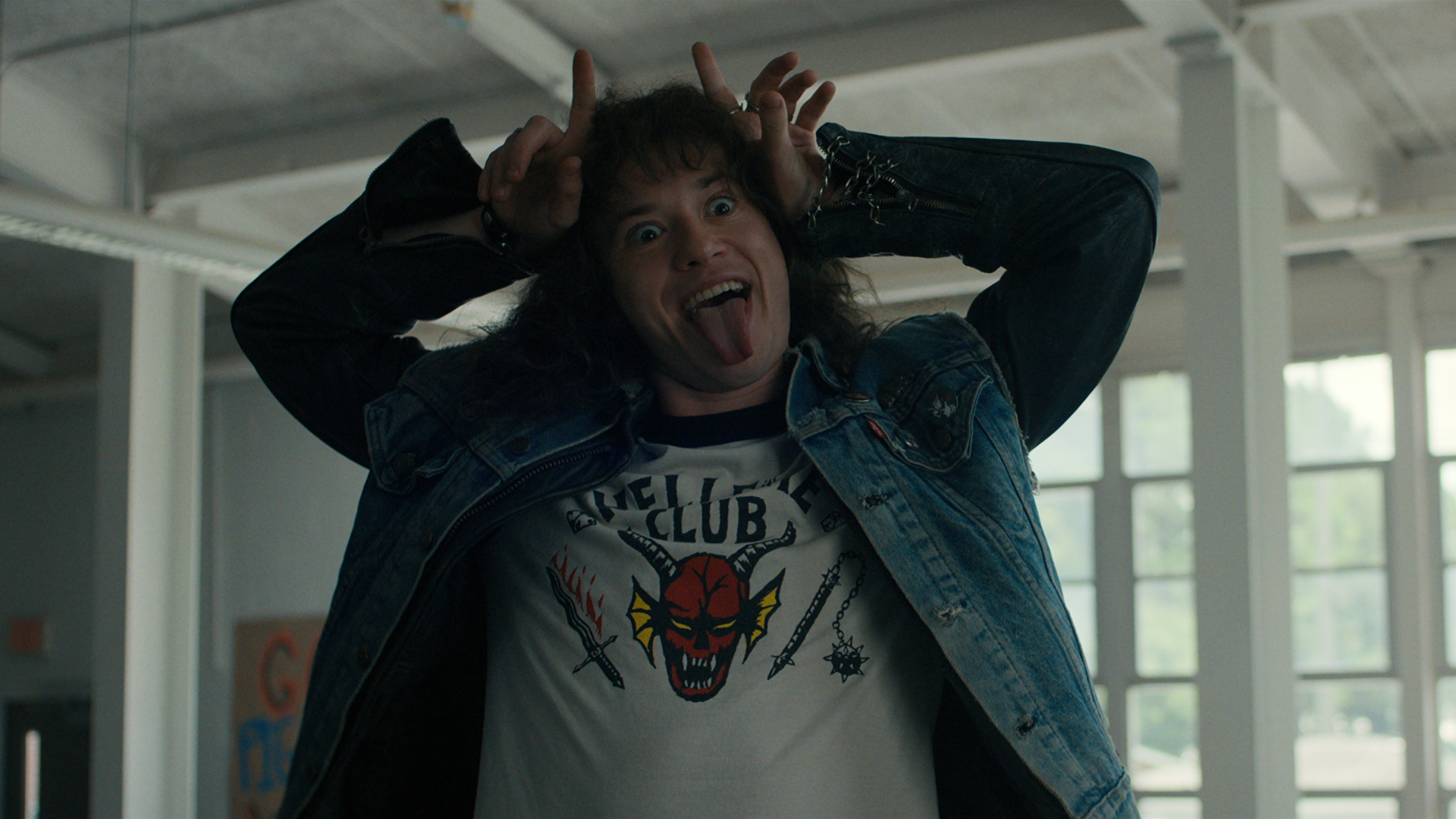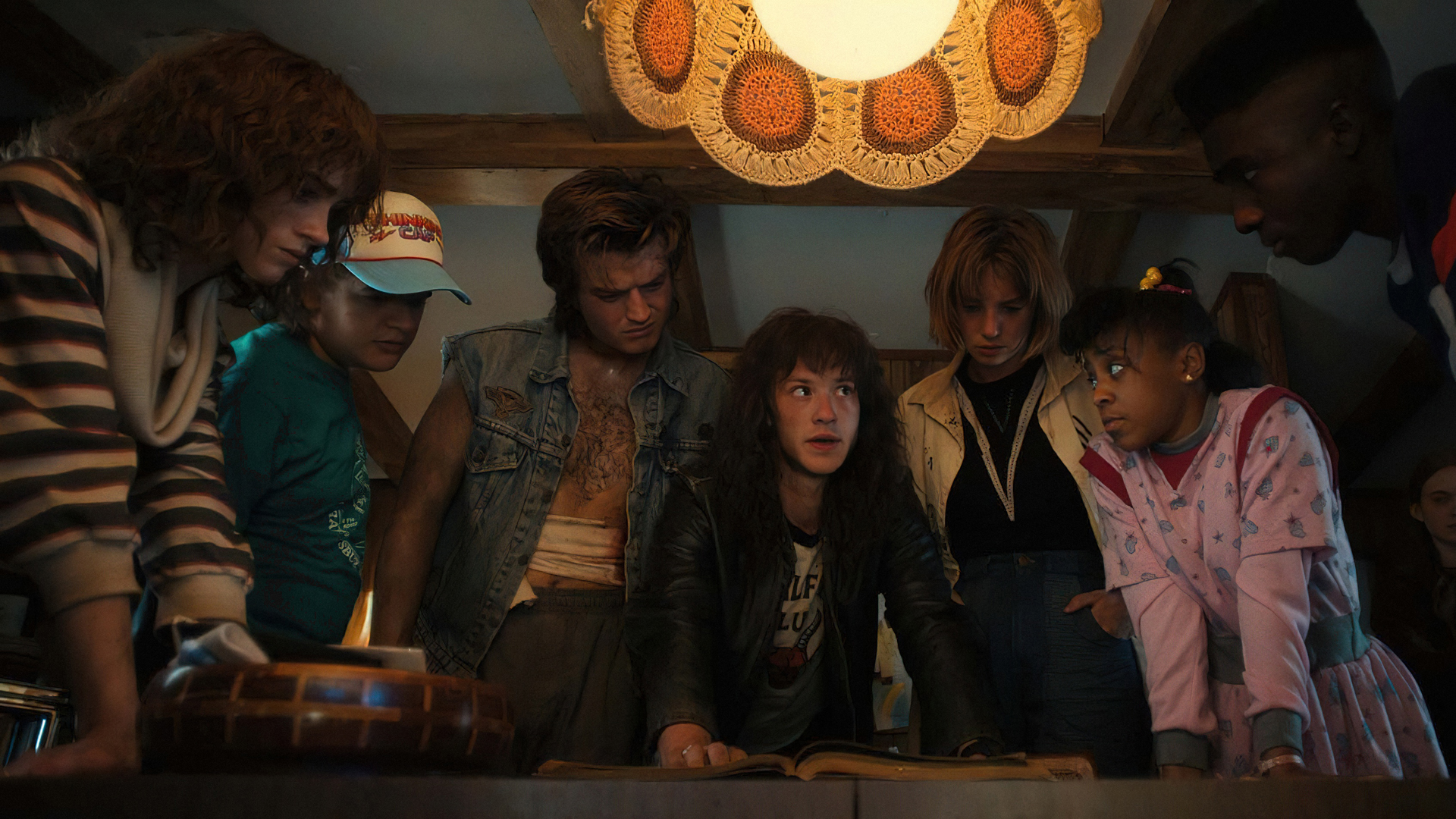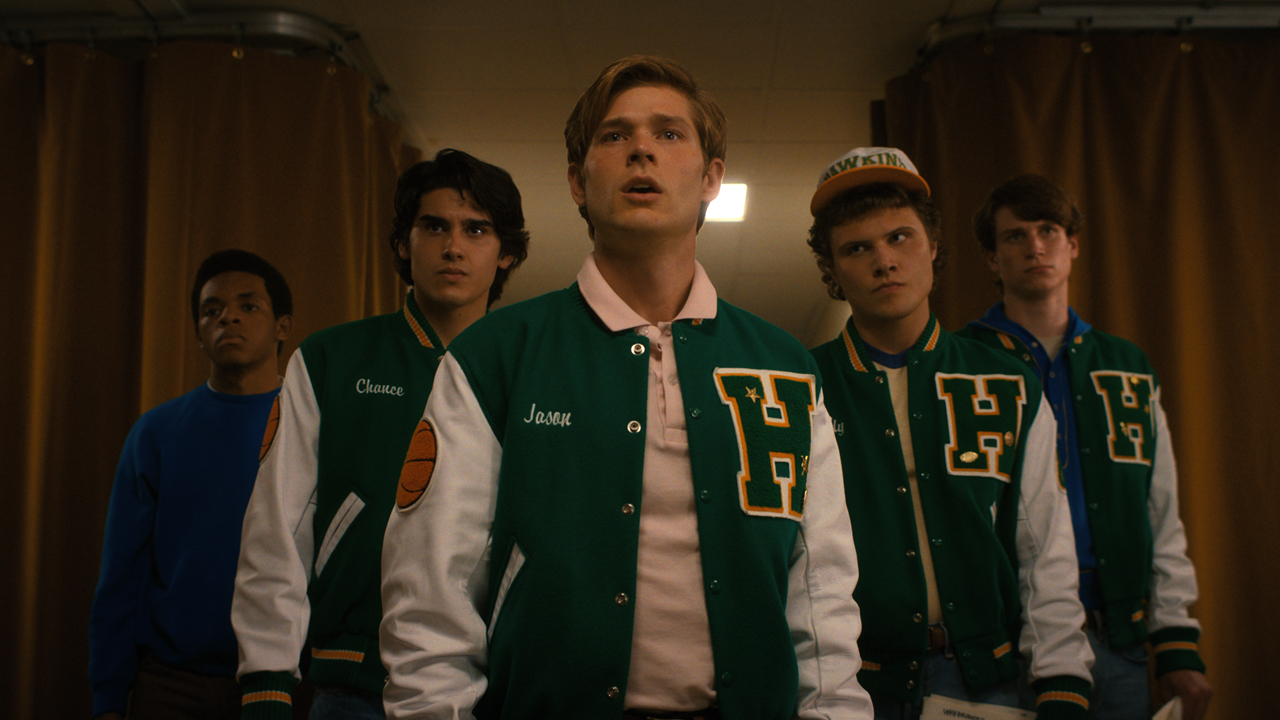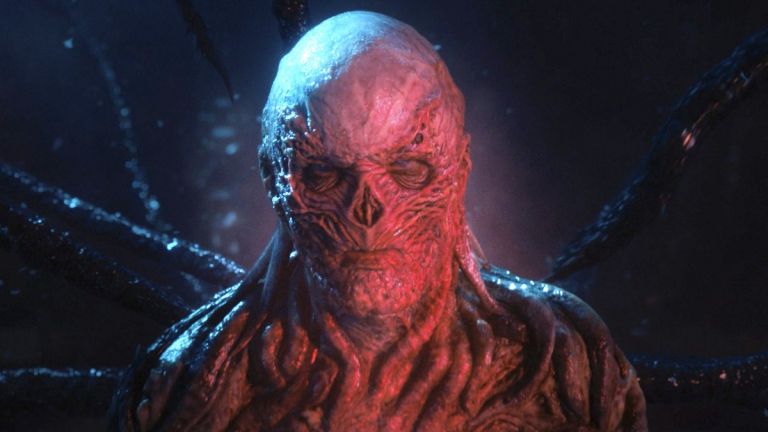Why Stranger Things needs to embrace its inner Game of Thrones
Opinion: When it comes to death, Millie Bobby Brown was right when she said Stranger Things needs a Game of Thrones mindset

Sign up for breaking news, reviews, opinion, top tech deals, and more.
You are now subscribed
Your newsletter sign-up was successful
Major spoilers for Stranger Things follow, if you're not bang up to date and you're planning on watch, please stop reading.
Farewell, Eddie Munson. We hardly knew you.
Hawkins’ most famous Metallica-shredding, Dungeons & Dragons-playing murder suspect may have been the breakout star of Stranger Things season 4, but compared to the established characters, a newbie like Eddie always seemed expendable.
For all its interdimensional peril, the hit Netflix series has developed an unwritten rule that – much like Tom Cruise* – its established stars never die on screen, leaving newer additions the ensemble (see also Bob and Billy) at the cruel mercy of the Grim Reaper’s axe. Poor Eddie never stood a chance.
Death has always been part of Stranger Things – remember #justiceforbarb? – but for the regulars, it’s now more a tease than a threat. So when the season 4 finale dispatched the usual suspects to the haunted Creel mansion, the Upside Down and a Soviet prison camp, practically every one of the gang found themselves mere inches from death, before emerging unscathed.
The only recognisable fatalities were the aforementioned Munson and Dr Brenner. Meanwhile, having dispensed with the services of her guardian angel, Kate Bush, Max (herself a season 2 addition to the show) was seemingly bumped off by Vecna, until Eleven’s newly discovered powers of resurrection gave her an unexpected stay of execution.
As Stranger Things becomes bigger, darker and more complex, however – and the threat from Demogorgons, Mind Flayers and Vecna increases – the show’s reluctance to kill off its core cast has become its Achilles heel. High-risk scenarios cease to be high-risk when you know your heroes are always going to walk away in one piece, and – even in a show where murderous creatures from a parallel universe are an every-day occurrence – makes everything less plausible. When it’s more dangerous to be an innocent bystander in Hawkins – RIP the 22 people killed in the Vecna ’quake – than venture into the Upside Down, something’s not quite right.
Sign up for breaking news, reviews, opinion, top tech deals, and more.

Dodging the bullet
“The Duffer brothers are two sensitive Sallies that don’t want to kill anyone off,” star Millie Bobby Brown said recently to The Wrap, “We need to be Game of Thrones. We need to have the mindset of Game of Thrones. They tried killing David [Harbour, aka Hopper] off, they brought him back. It’s ridiculous.”
While they continue to avoid pulling the trigger on a regular, Stranger Things creators/showrunners the Duffers do so love to tease. As far back as season 1, they pretended Eleven was dead before hinting at her return with a box of Eggos. Chief Hopper’s subsequent demise in season 3 lasted mere minutes, before a Soviet prison guard referred to “the American” in custody.
As it jumped between multiple locations in a masterclass of editing, the season 4 finale revelled in a succession of near misses and fake-out deaths for Lucas, Dustin, Nancy and pretty much everyone else, before deciding that – with the exception of Max – everyone you knew and loved was going to be okay.
Before the final episodes dropped, Ross Duffer even attempted to stoke our collective sense of unease, telling Variety, “I would be concerned about the characters going into Volume 2, for sure. I hope that is sort of the sense because it is a darker season and the kids are no longer kids. And there’s sort of an ominous feeling that things might not go well.”
Ultimately, however, the brothers were unable to properly deliver on that promise. Are they too attached to the characters? Do they worry about putting an actor out of work? Are they saving all the deaths for some colossal Stranger Things season 5 bloodbath? Whatever the reason, even Brown felt compelled to call out the Duffers.

Game of death
“Once you’ve accepted that you have to include death, then you should be honest, and indicate it can strike down anybody at any time,” Game of Thrones author George RR Martin told Galaxy’s Edge (via the Guardian) in 2016. “You don’t get to live forever just because you are a cute kid or the hero’s best friend or the hero. I love all my characters so it’s always hard to kill them but I know it has to be done.”
Her comments may have been slightly tongue in cheek – she’d just lamented the challenges of getting the ever-expanding cast into a single photo – but looking to Westeros for inspiration may not be a bad idea.
Matt Duffer responded to Brown in the Happy Sad Confused podcast, explaining, “Believe us, we’ve explored all options in the writing room. Just as a complete hypothetical, if you kill Mike, it’s like… that’s a depressing… we aren’t Game of Thrones. This is Hawkins, it’s not Westeros. The show becomes not Stranger Things anymore, because you do have to treat it realistically, right?”
Although the Duffer acknowledged that more deaths are “on the table” as “we’re headed towards the end”, his comments may be missing the point. While nobody’s expecting Stranger Things to deliver carnage on the scale of the Red Wedding or the Battle of the Bastards – this is the Illinois of the mid-’80s rather than a brutal, fantasy recreation of the Middle Ages, after all – the longer every established character survives, the harder it is to suspend your disbelief. Death shouldn’t just be reserved for newcomers (Eddie), villains (Dr Brenner) or combinations of the two (Jason).
But that’s not to say it shouldn’t hurt when a beloved character dies. Some of the most memorable moments in Buffy the Vampire Slayer and Harry Potter were the deaths that knocked you sideways, while the kill-happy 24 traditionally signified a major departure with silent credits to remind us it was a big deal. For drama to be truly satisfying, sometimes good people have to die – can you truly experience the highs if you don’t also feel the lows?

Bending the rules
The Duffer brothers shouldn’t be singled out for their reluctance to kill their darlings, however. In this era of franchise-driven blockbusters, few major sagas are prepared to risk writing out a character who might be useful (dramatically or financially) later on. Sure, Tony Stark has so far stayed dead after the brutal finale of Avengers: Endgame, but how many other MCU heroes, sidekicks and love interests have survived the unsurvivable? And having gone to the trouble of bringing back Sam Neill, Laura Dern and Jeff Goldblum, it never felt likely that Jurassic World: Dominion was going to turn them into dino food.
Besides, Hollywood has found numerous ways to cheat death, giving viewers that shock, stomach-clenching moment, without any of the grief. Want to blow up Chewbacca? Don’t worry, he was actually on another ship. Need to bring back Han Seoul-Oh for Fast & Furious 9? Casually drop in the revelation that he faked his death to keep some sophisticated weapons software out of the wrong hands.
These days we’re so used to the idea that nobody is truly dead – much like Max – that Spock’s death would have little impact if The Wrath of Khan was released now. (Did anybody really believe that Captain Kirk was done after he ‘died’ during the mediocre Khan ‘homage’ of Star Trek into Darkness?)
Playing around with expectations of death – even for characters you love – will always be a key component of the best drama. But if you keep on pretending, giving your characters a way back from the great beyond, sooner or later it’s going to catch up with you – the boy who cried wolf via a multi-million dollar media franchise.
One of the reasons Stranger Things is such a smash hit is that the characters are so loveable that you don’t want them to go. But by keeping all of their main characters alive this far, the Duffers have stopped Stranger Things from being everything it could be. Not that it’s any consolation for poor old Eddie.
Stranger Things season 4 is available to stream on Netflix.
* There are exceptions to the rule (Collateral, Vanilla Sky, Valkyrie and, on numerous occasions, Edge of Tomorrow) but you get the point.
Richard is a freelance journalist specialising in movies and TV, primarily of the sci-fi and fantasy variety. An early encounter with a certain galaxy far, far away started a lifelong love affair with outer space, and these days Richard's happiest geeking out about Star Wars, Star Trek, Marvel and other long-running pop culture franchises. In a previous life he was editor of legendary sci-fi and fantasy magazine SFX, where he got to interview many of the biggest names in the business – though he'll always have a soft spot for Jeff Goldblum who (somewhat bizarrely) thought Richard's name was Winter.
